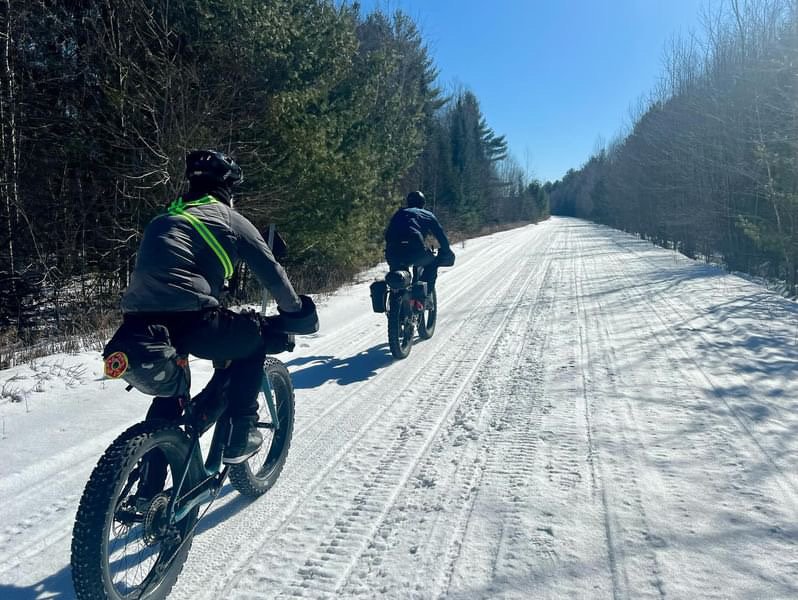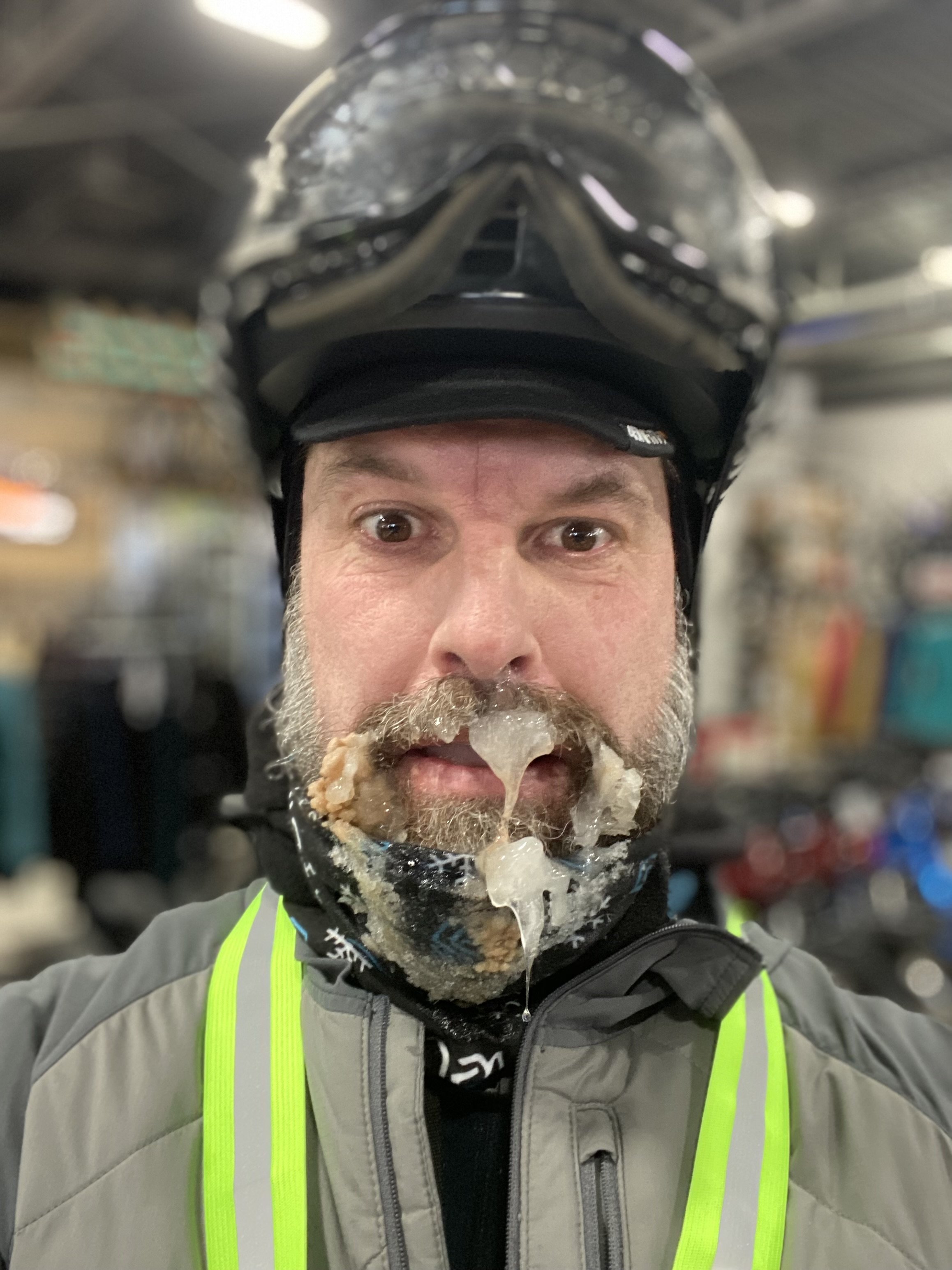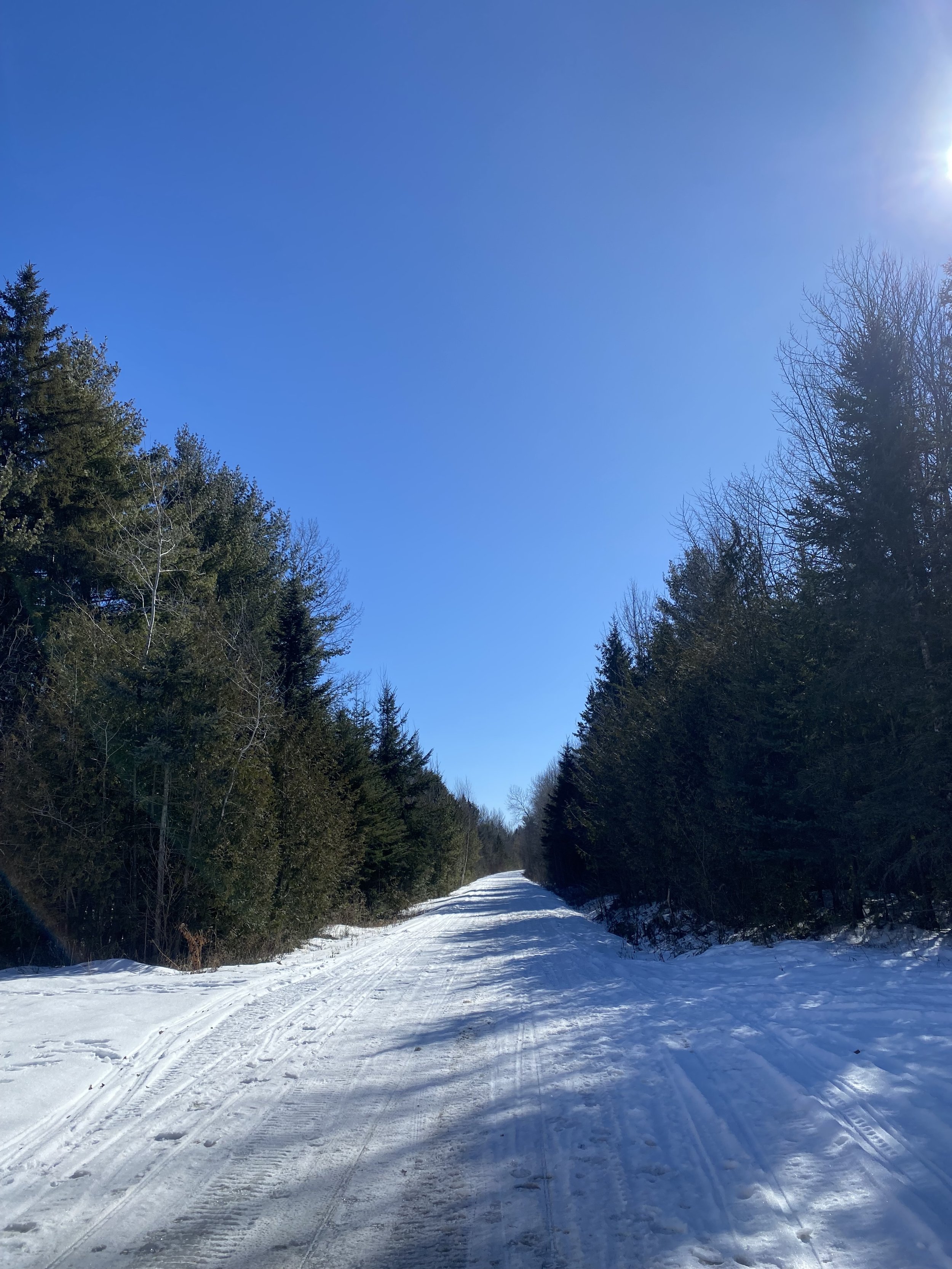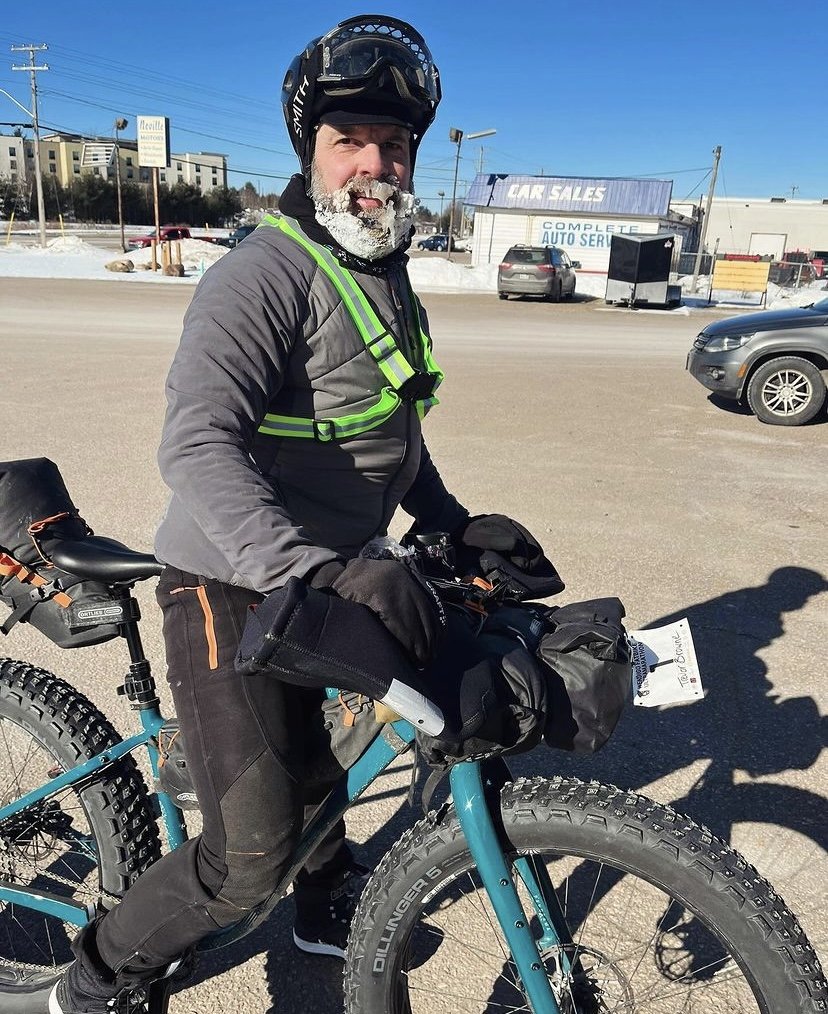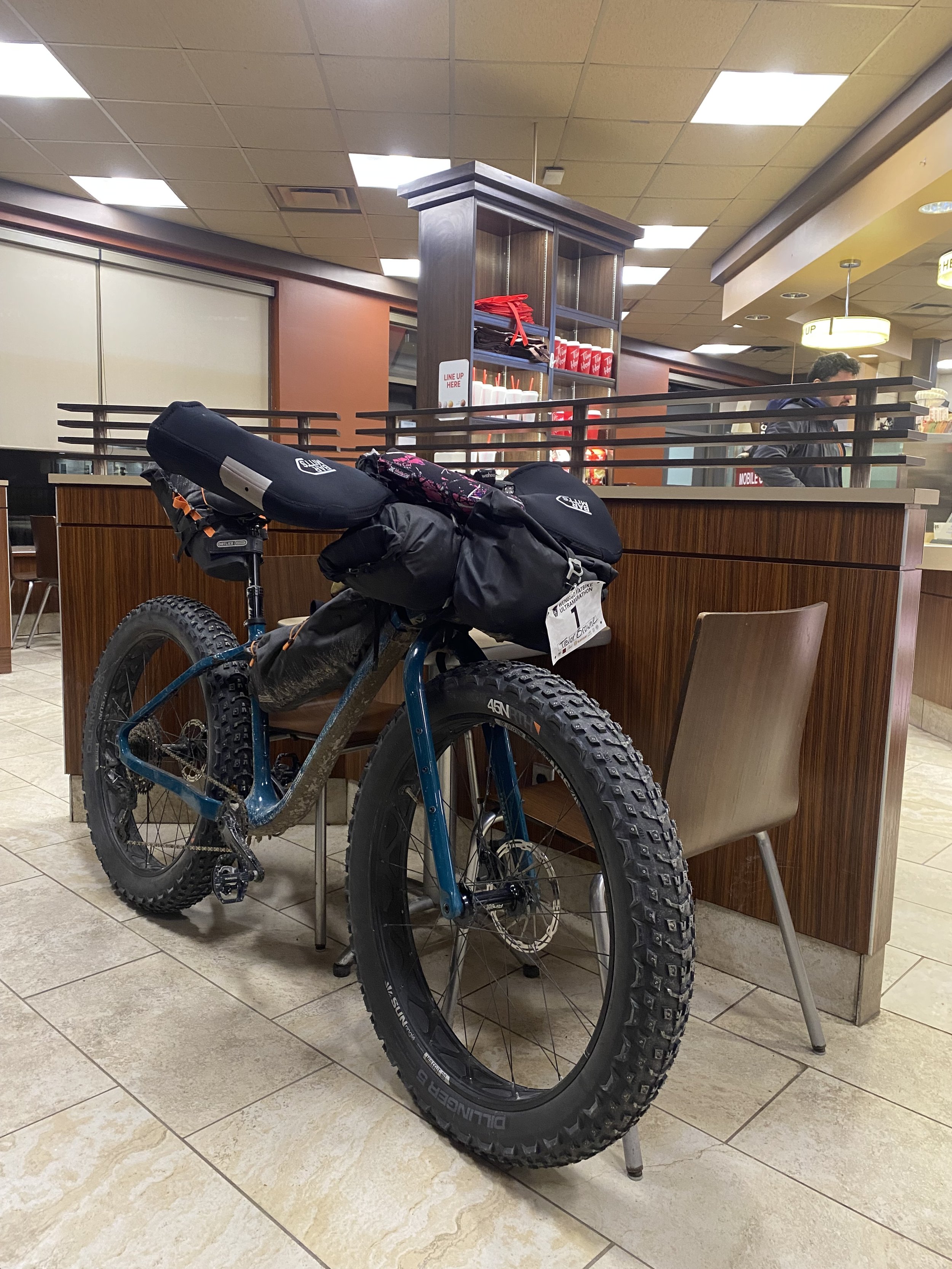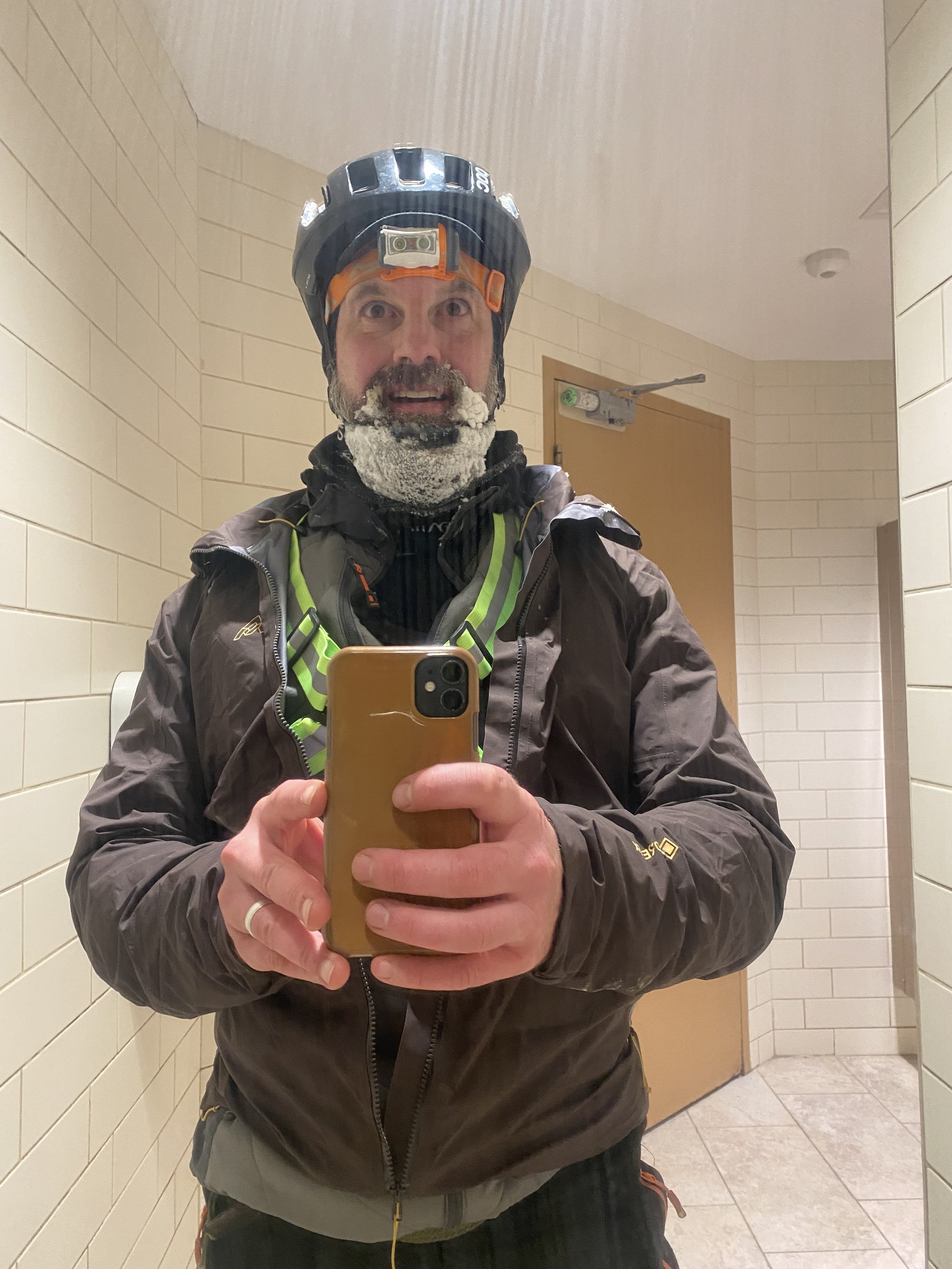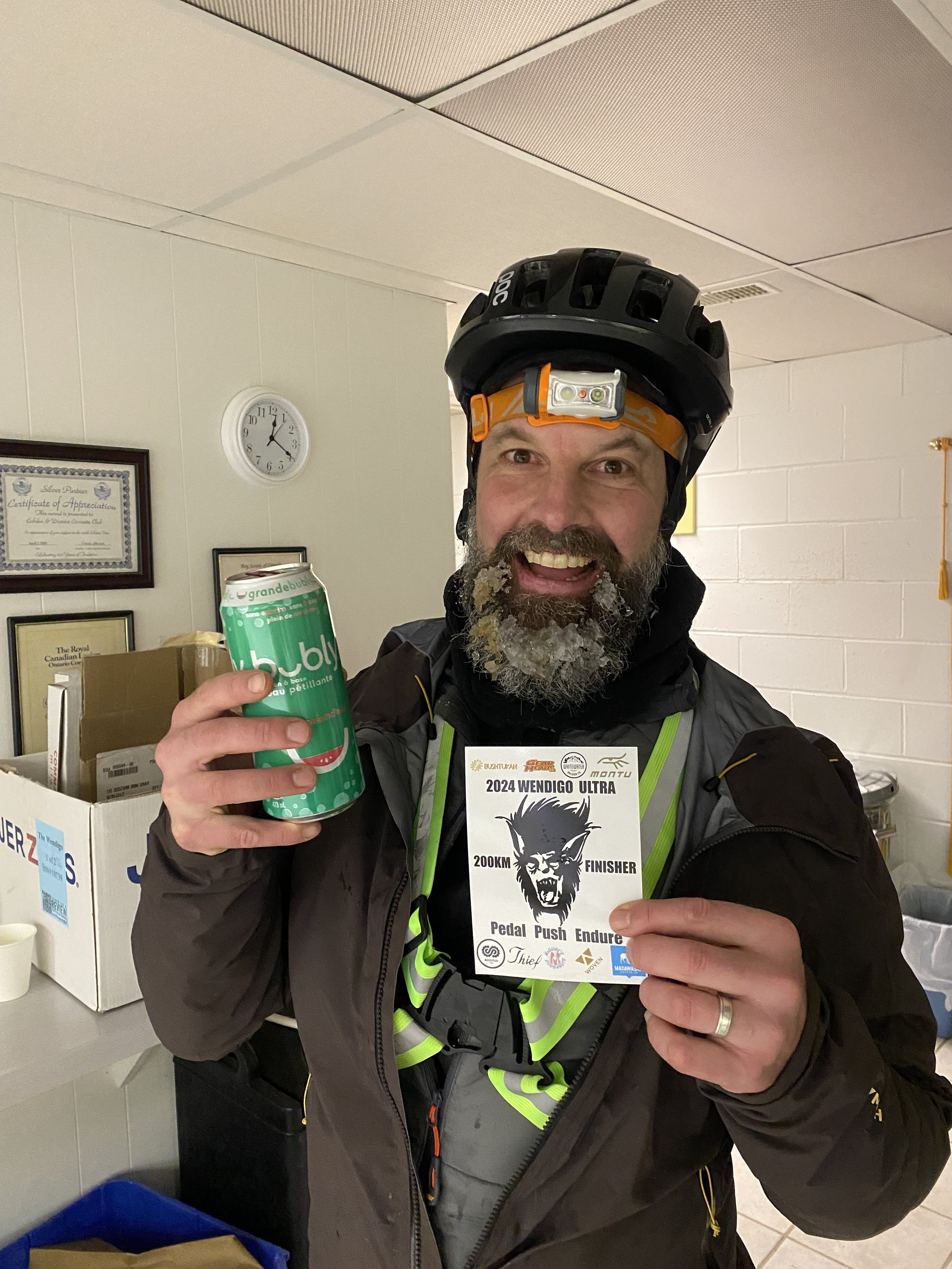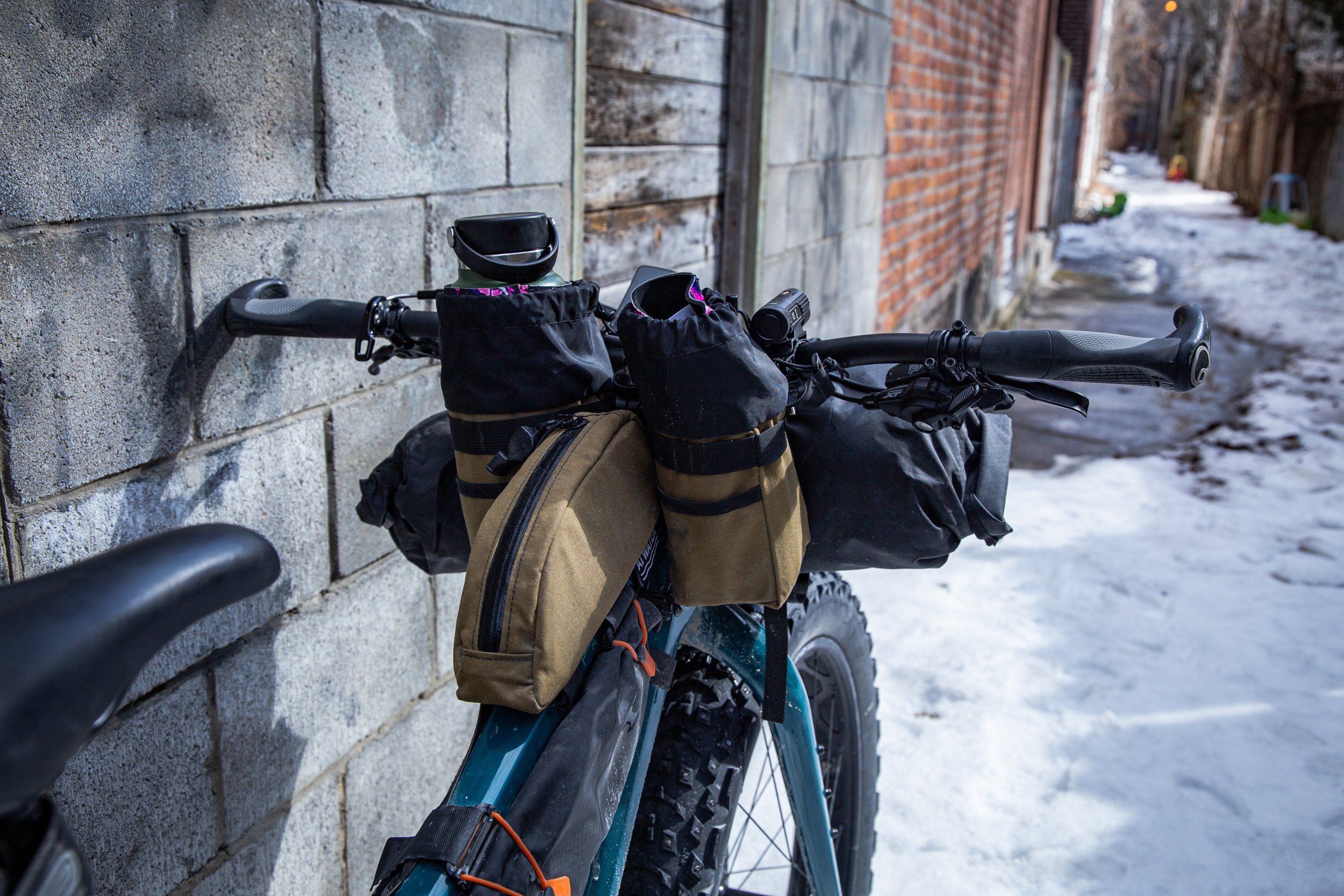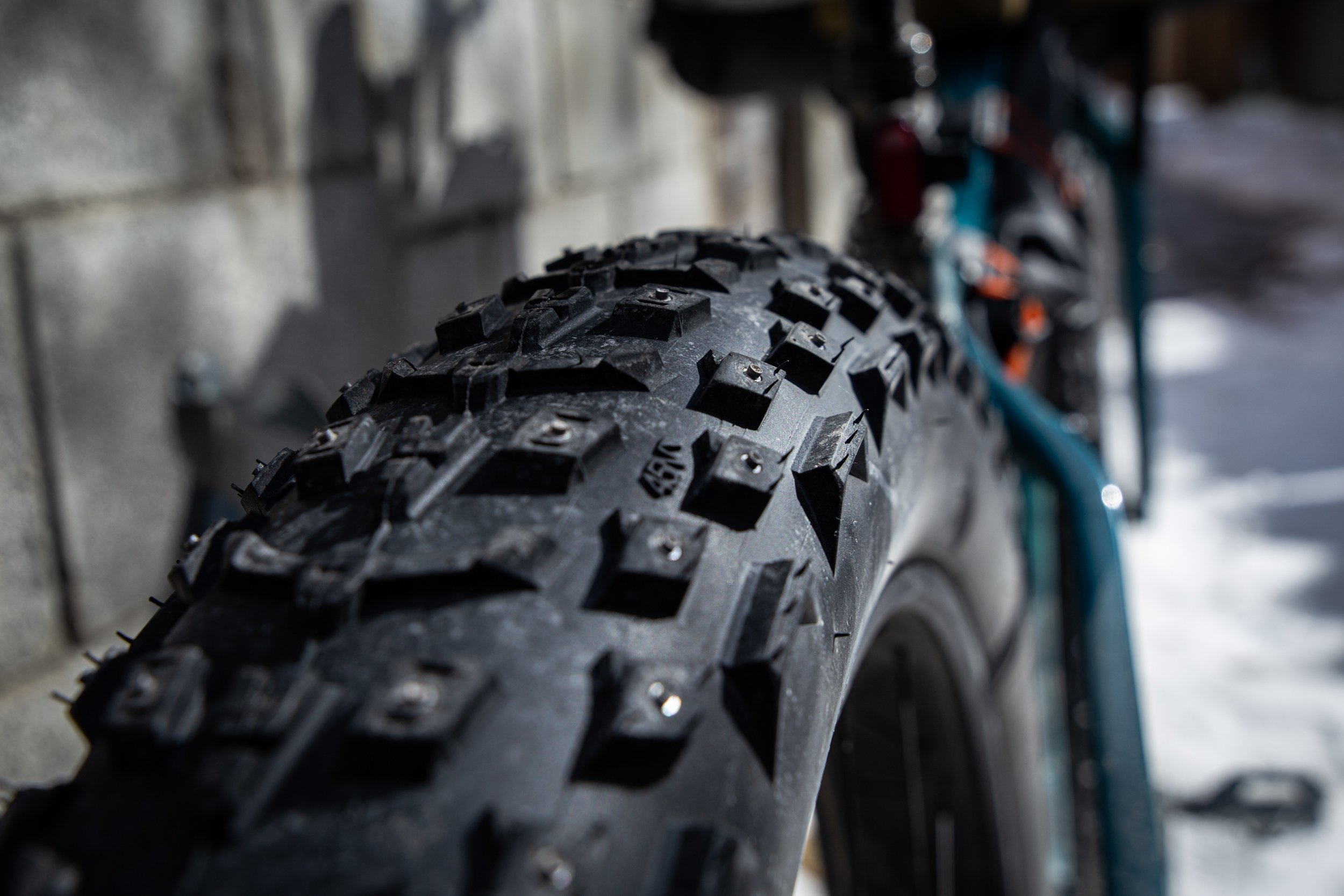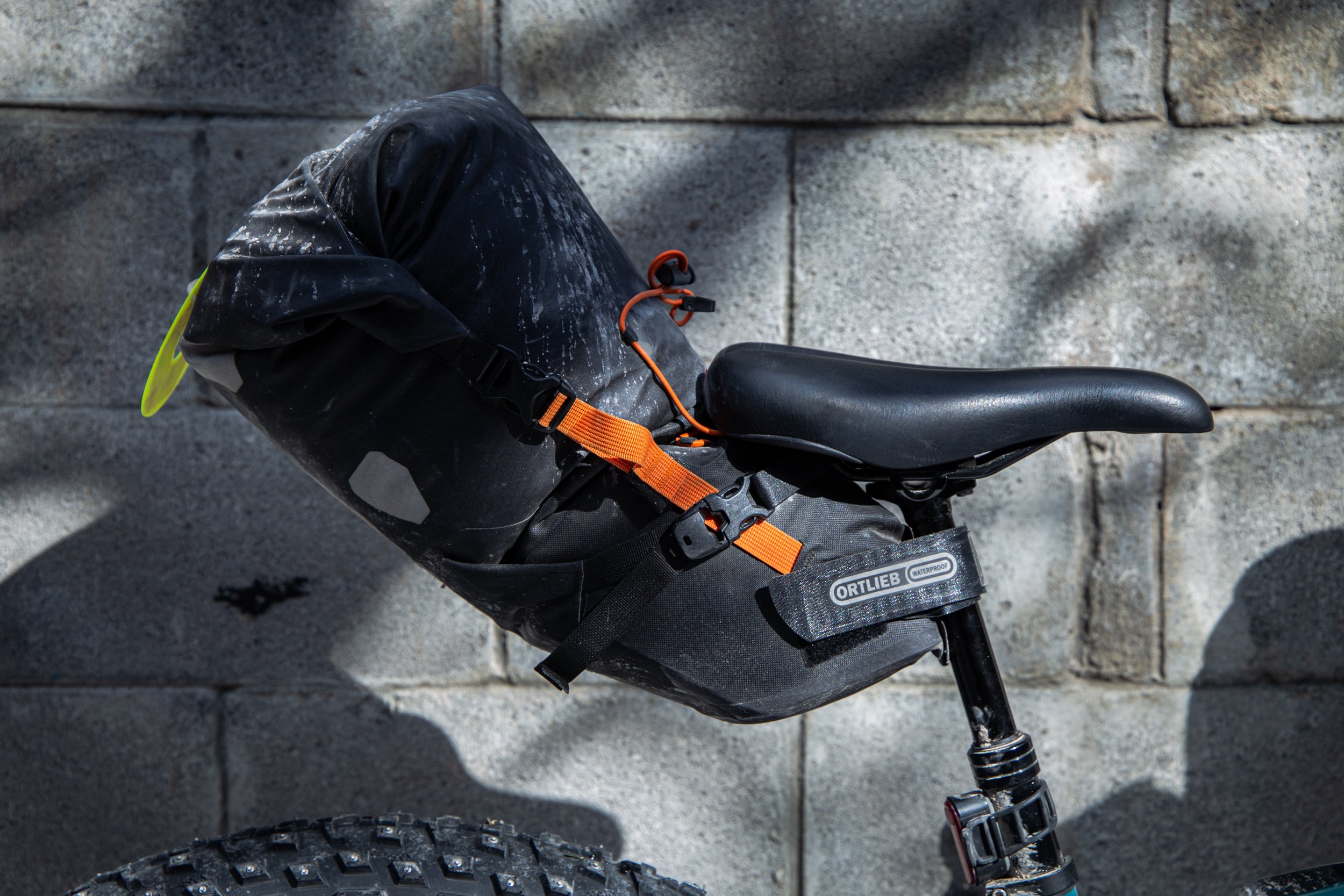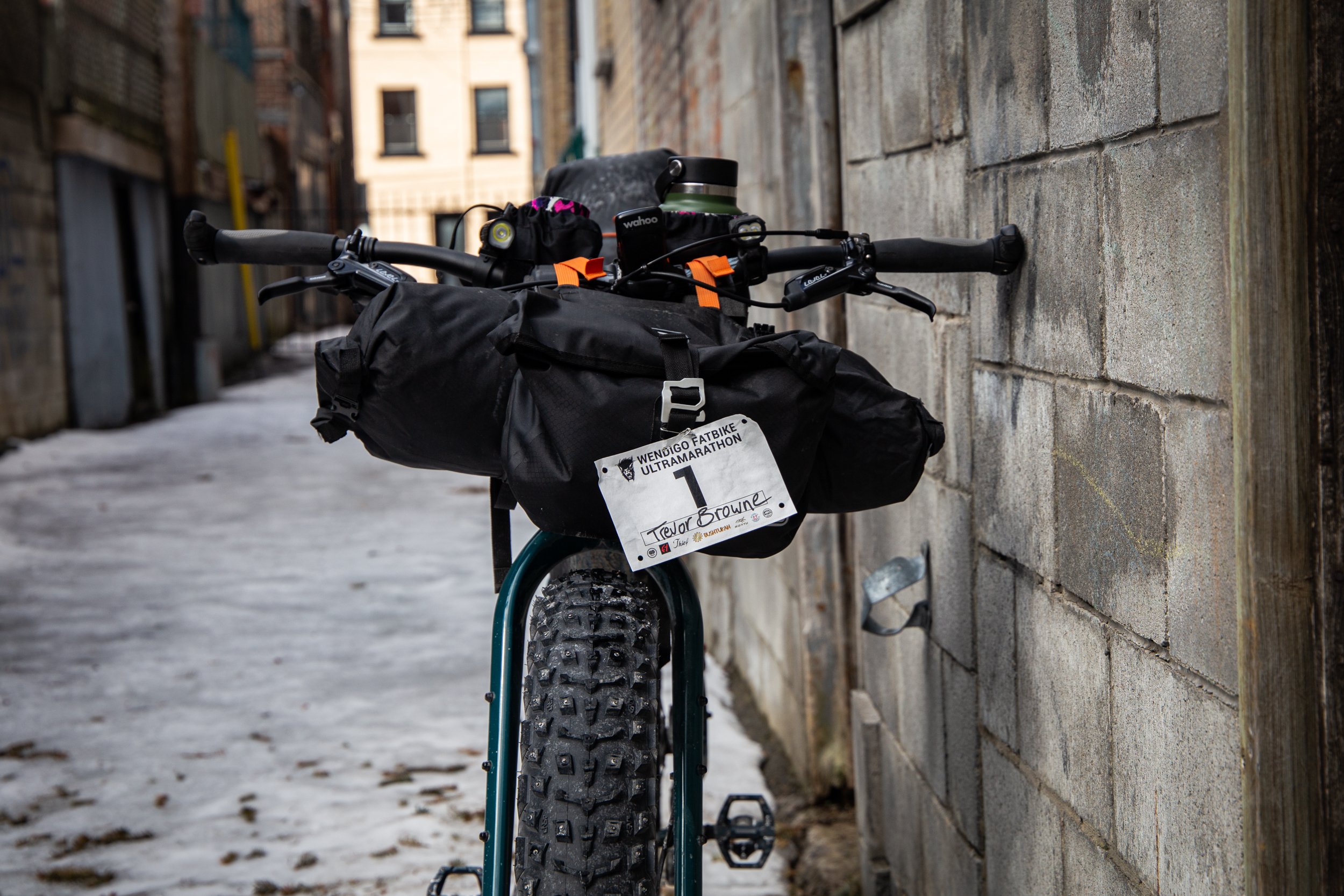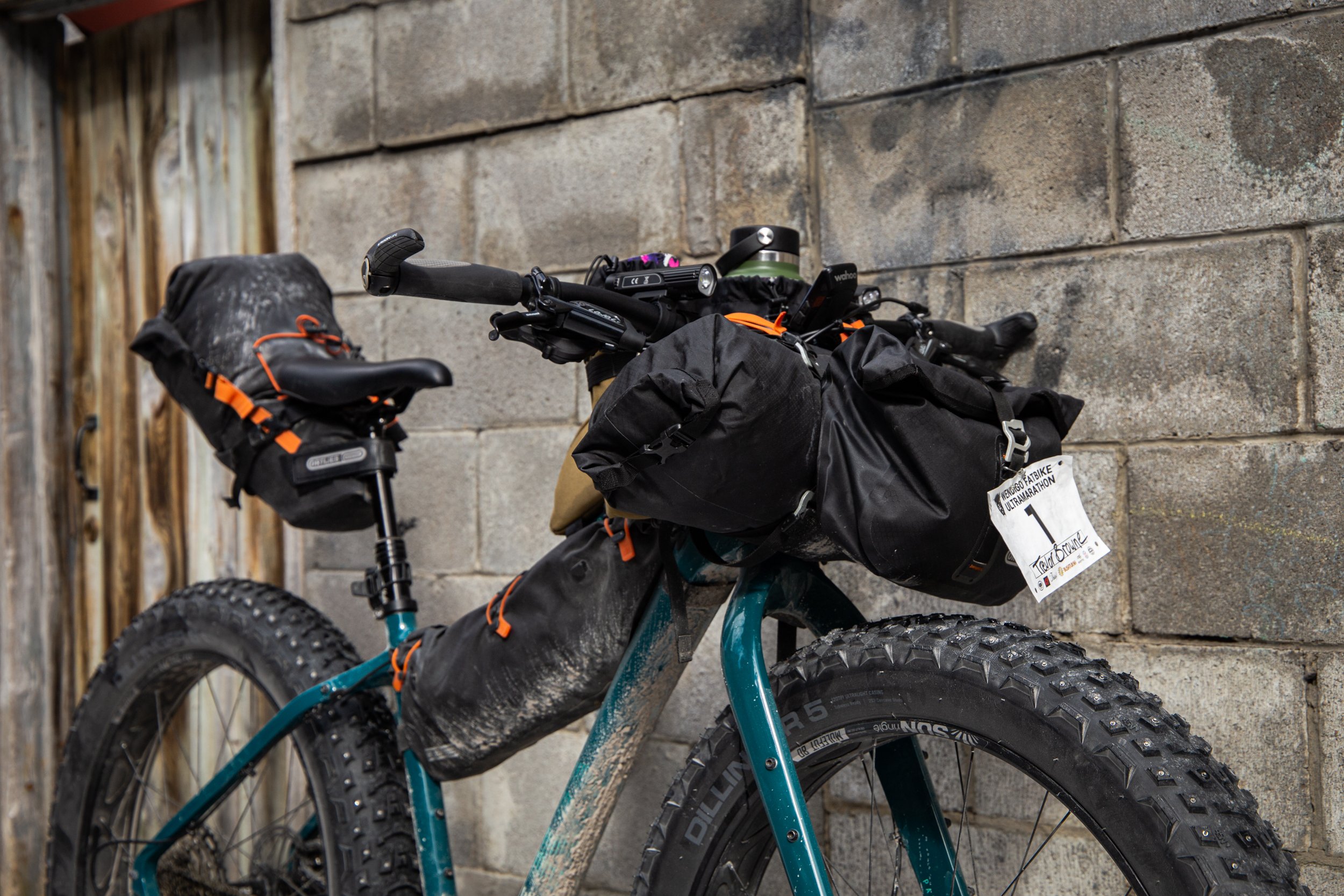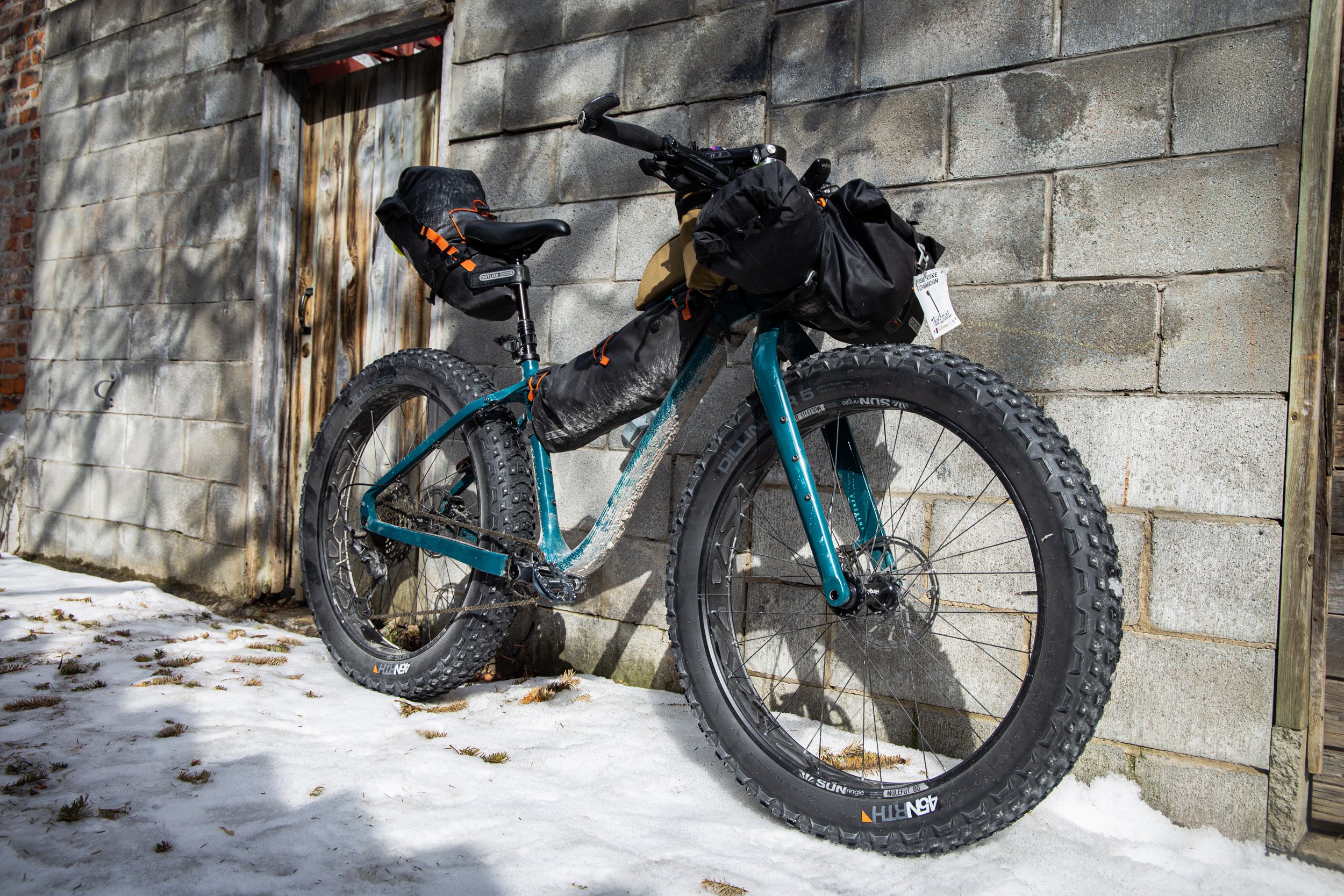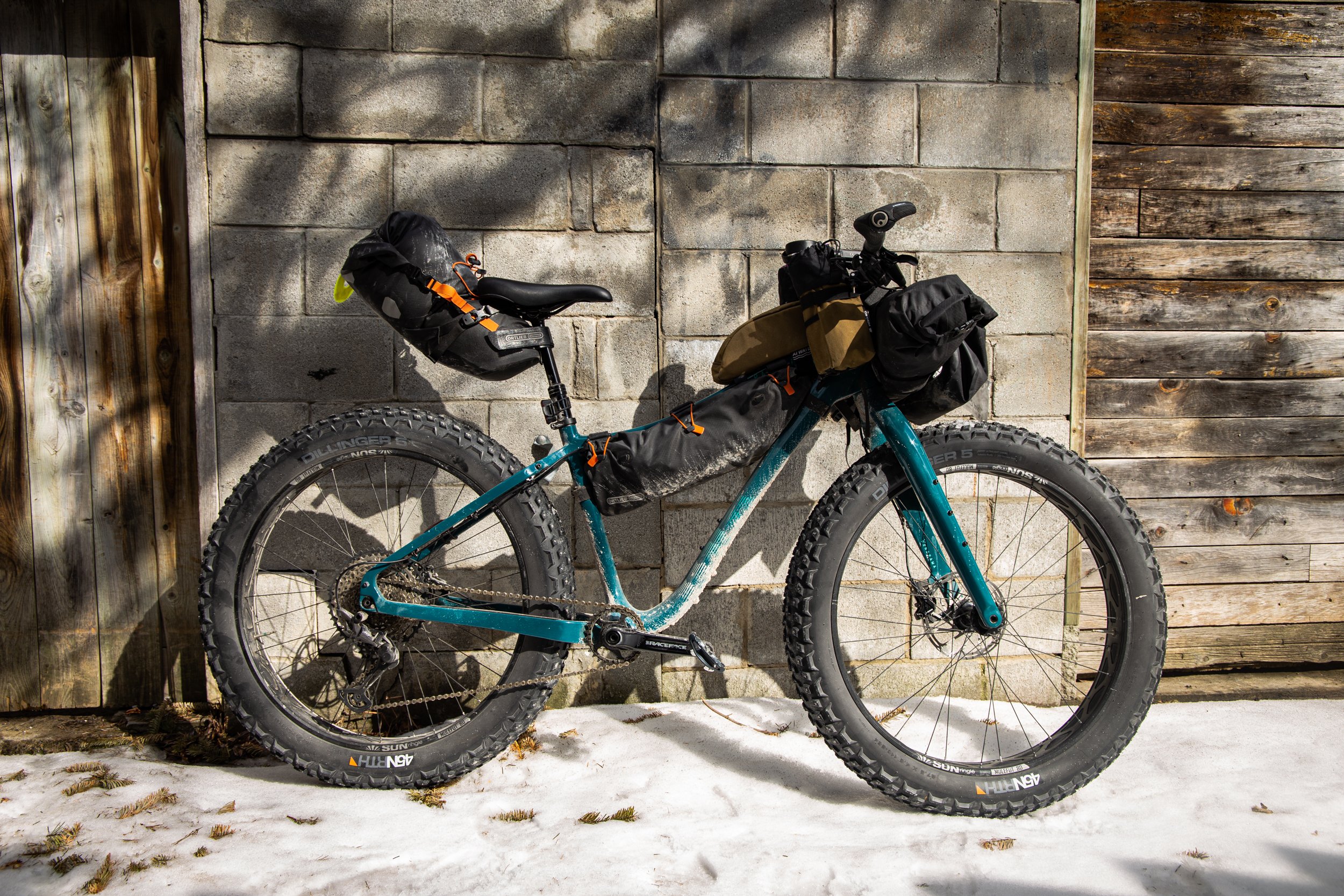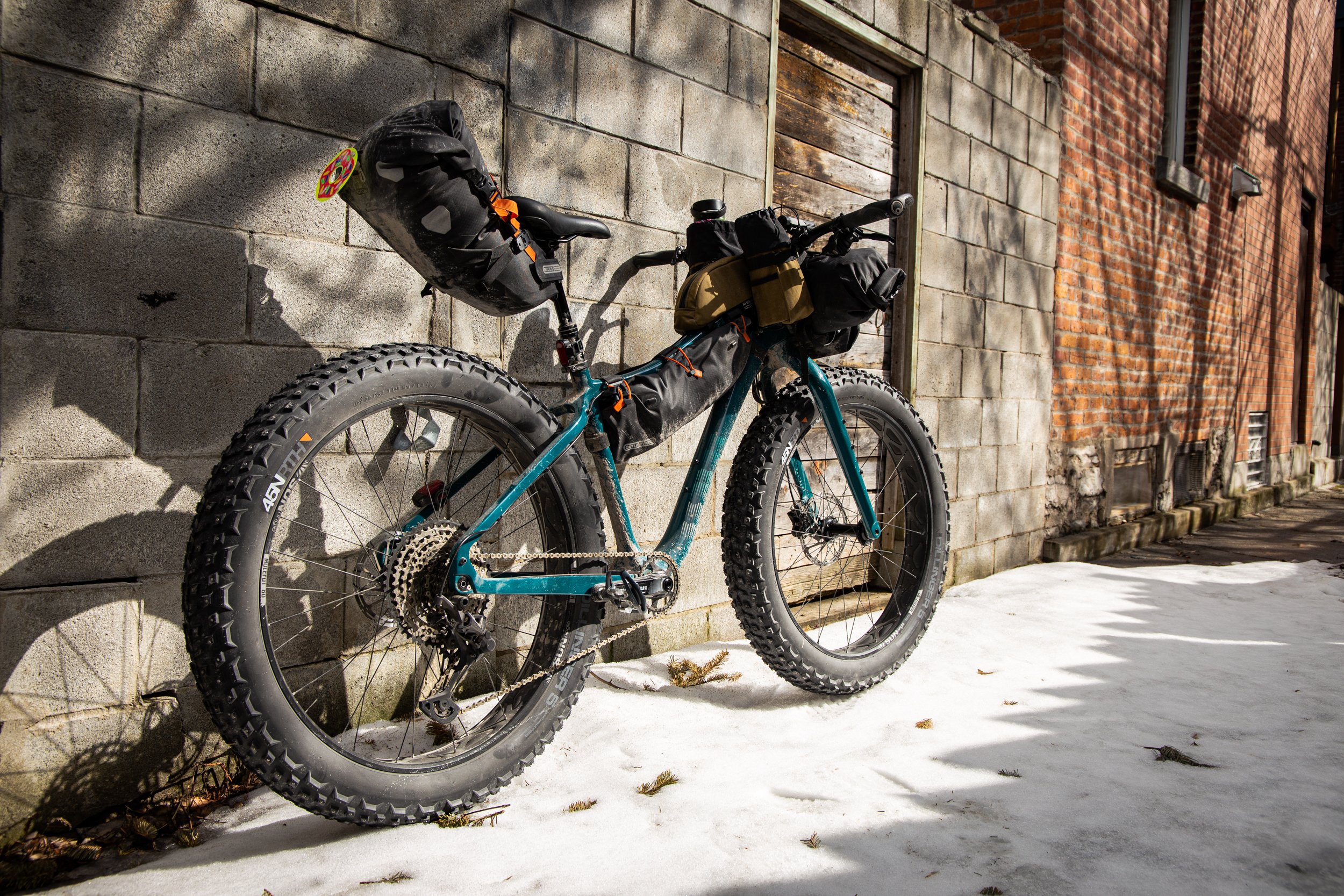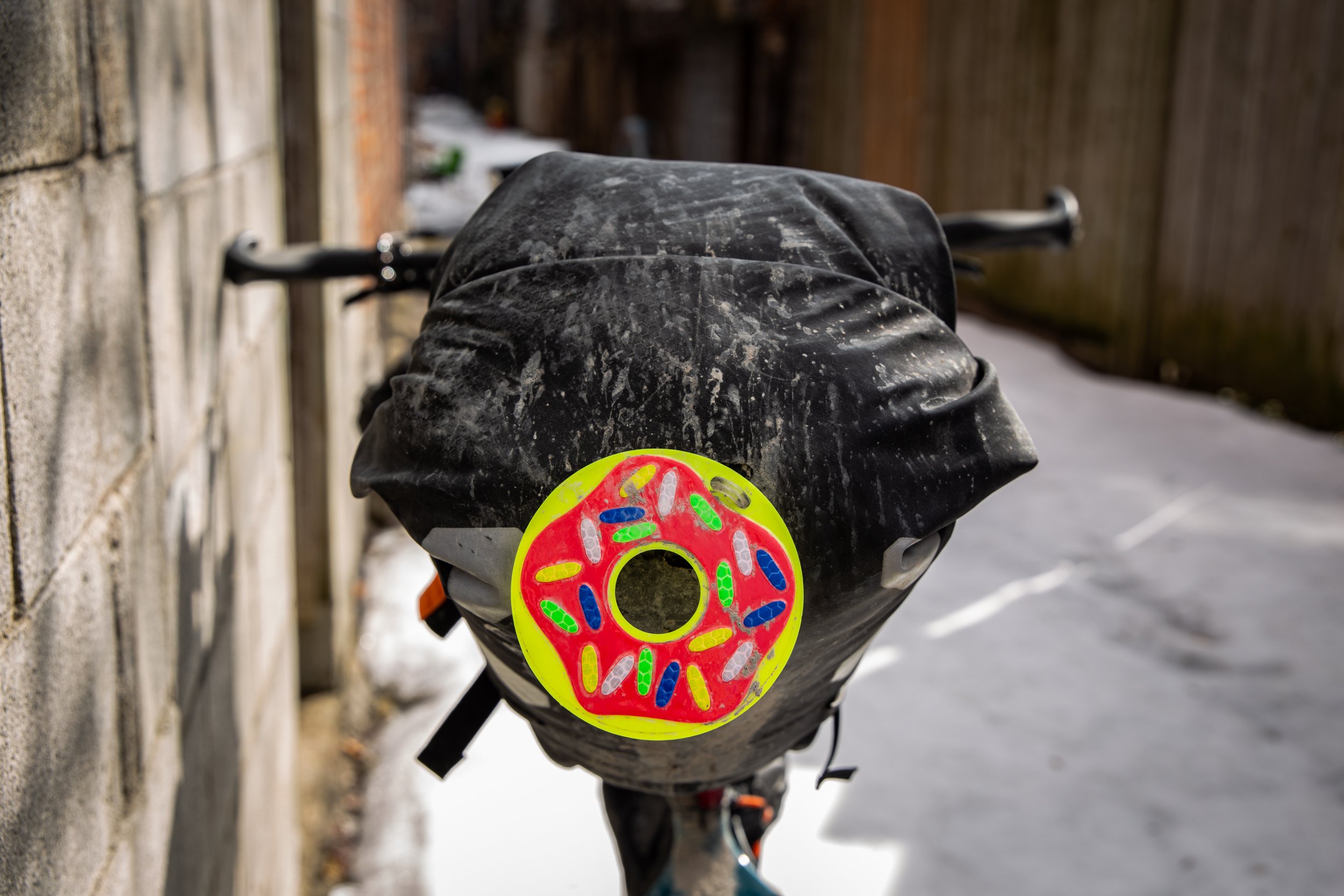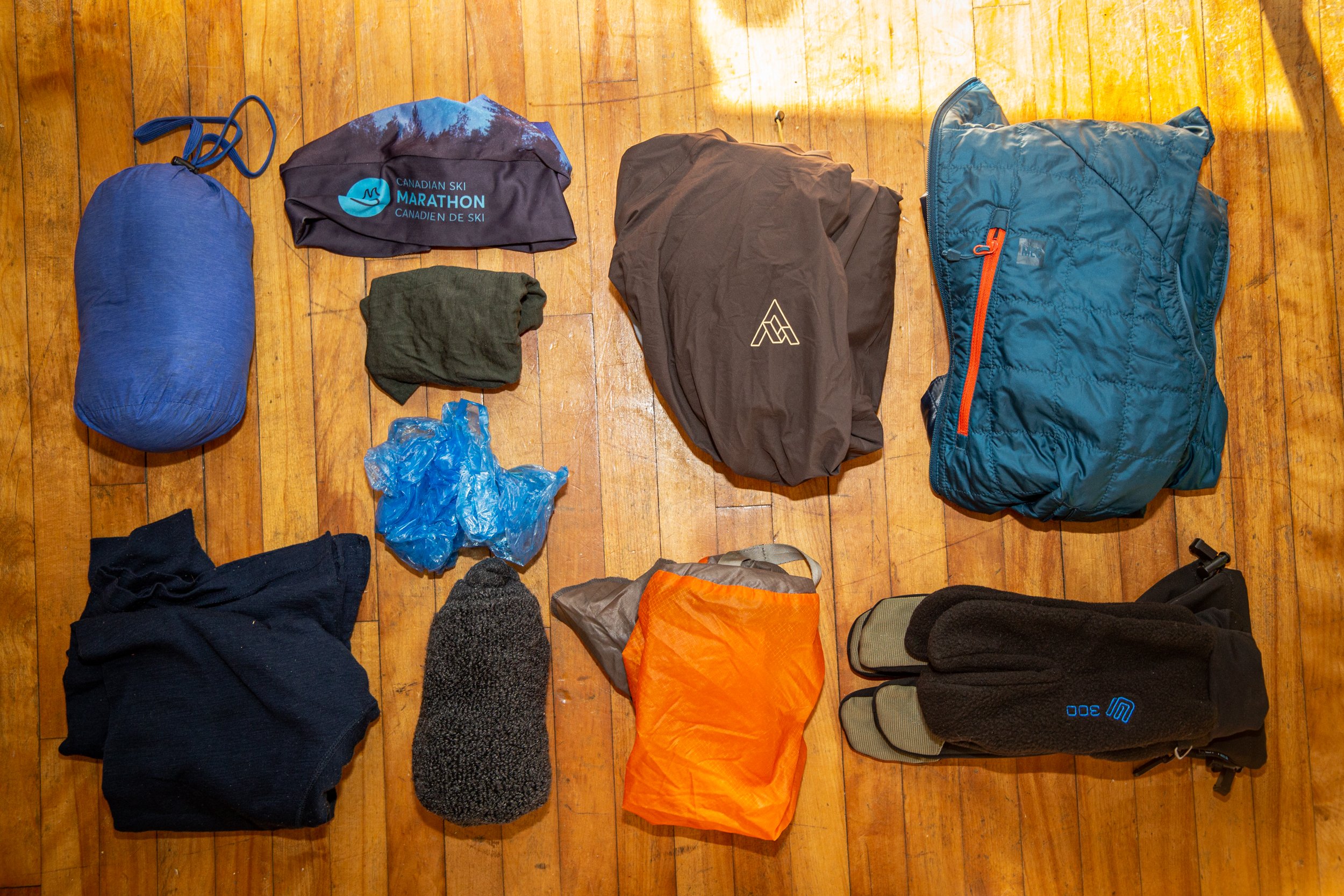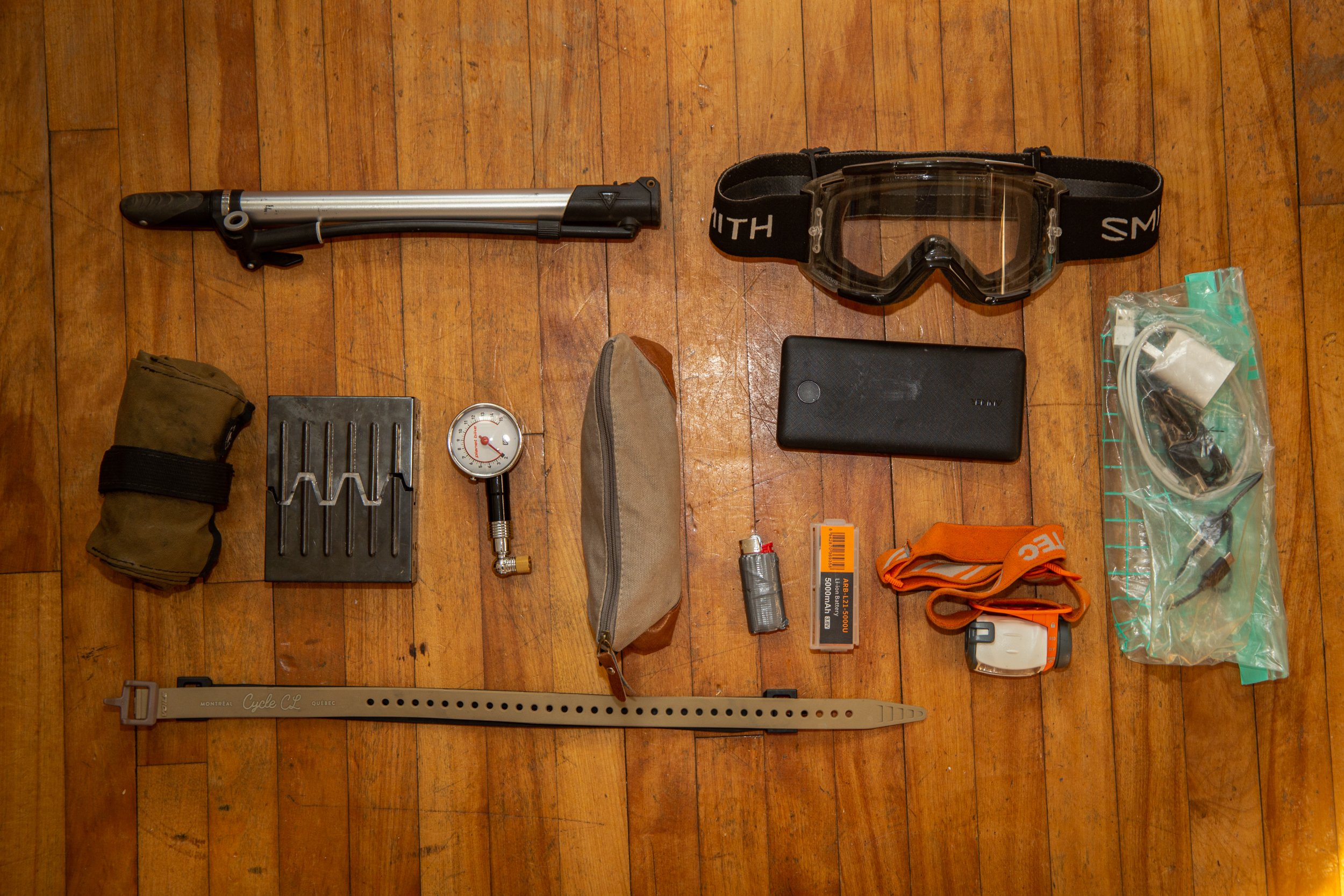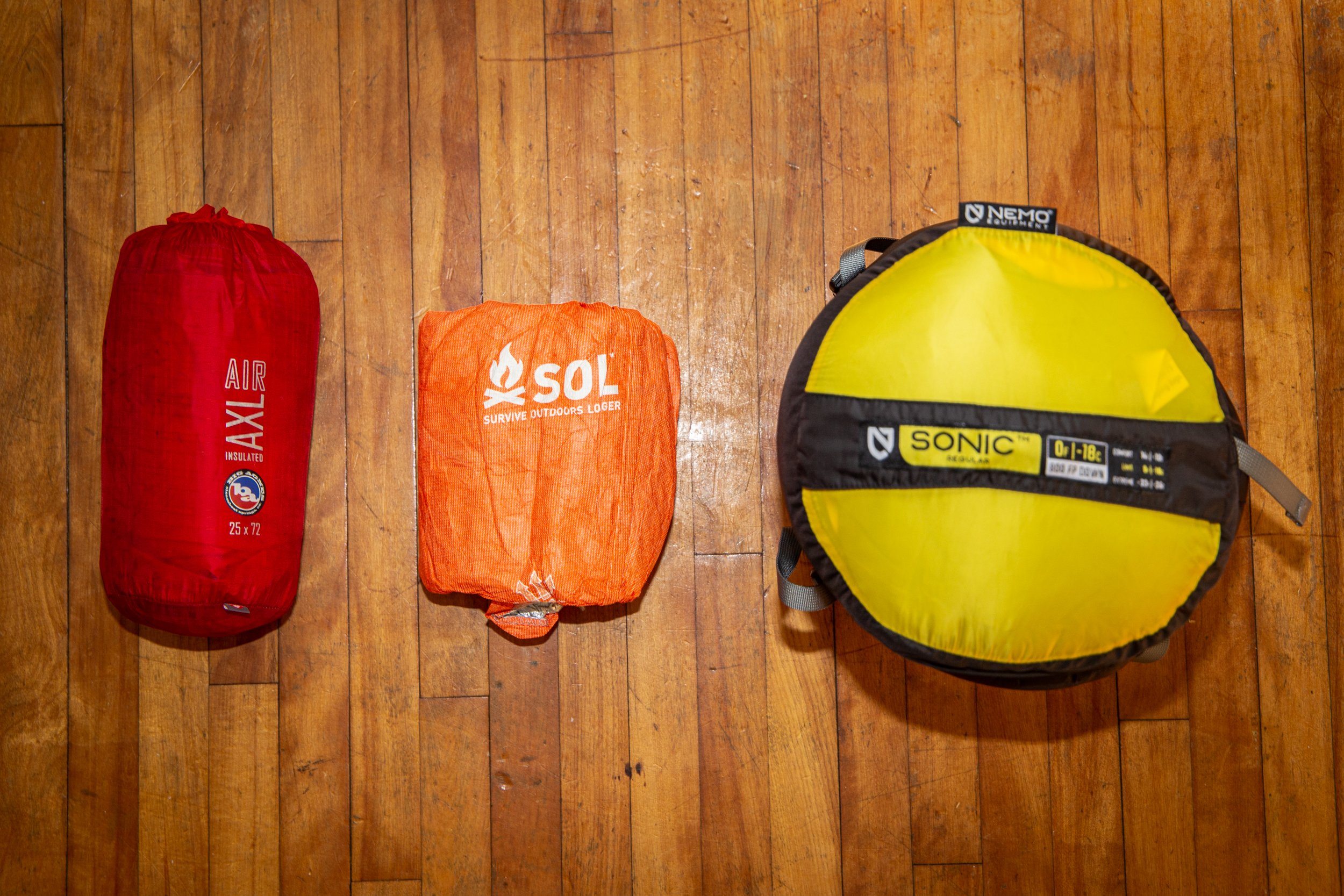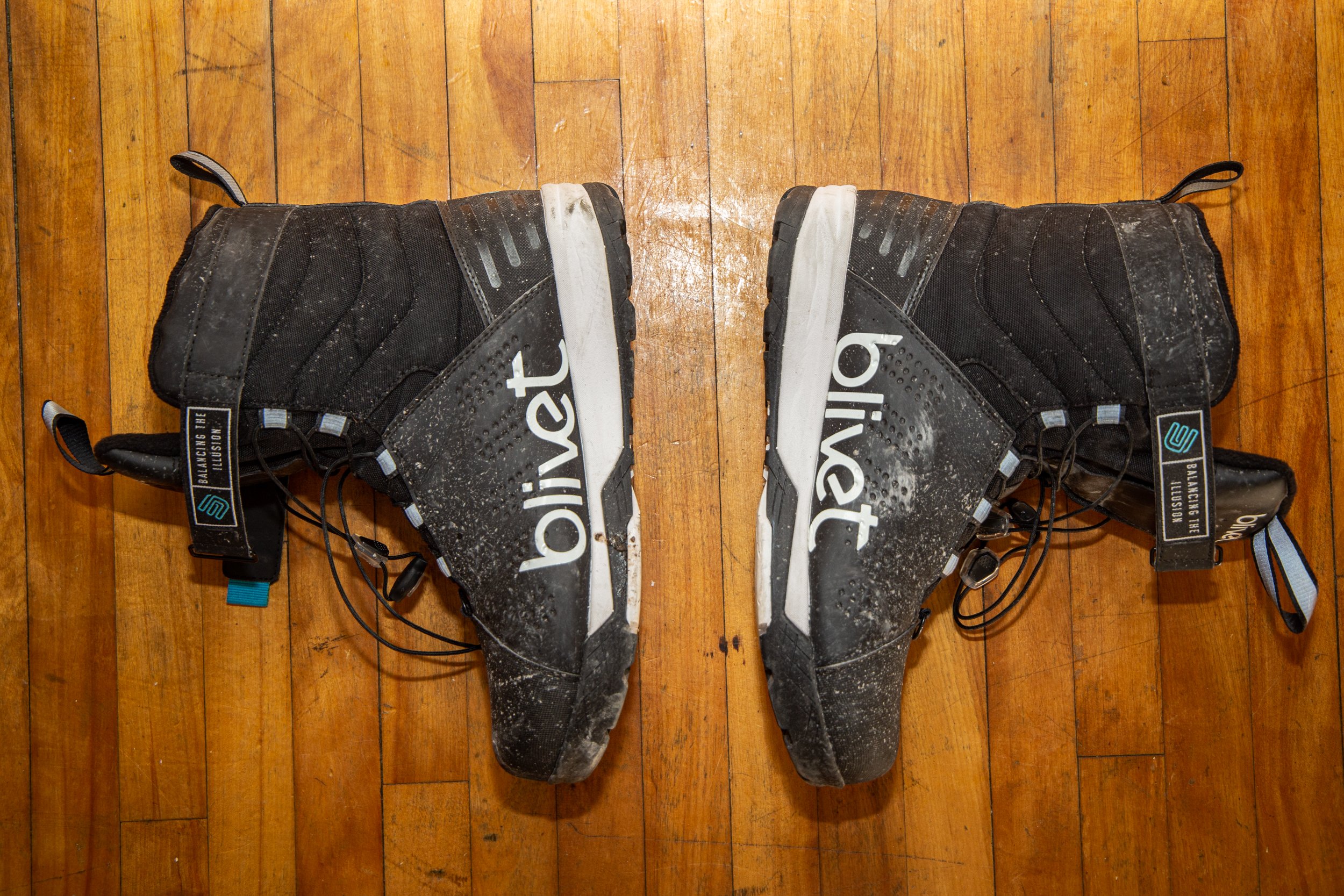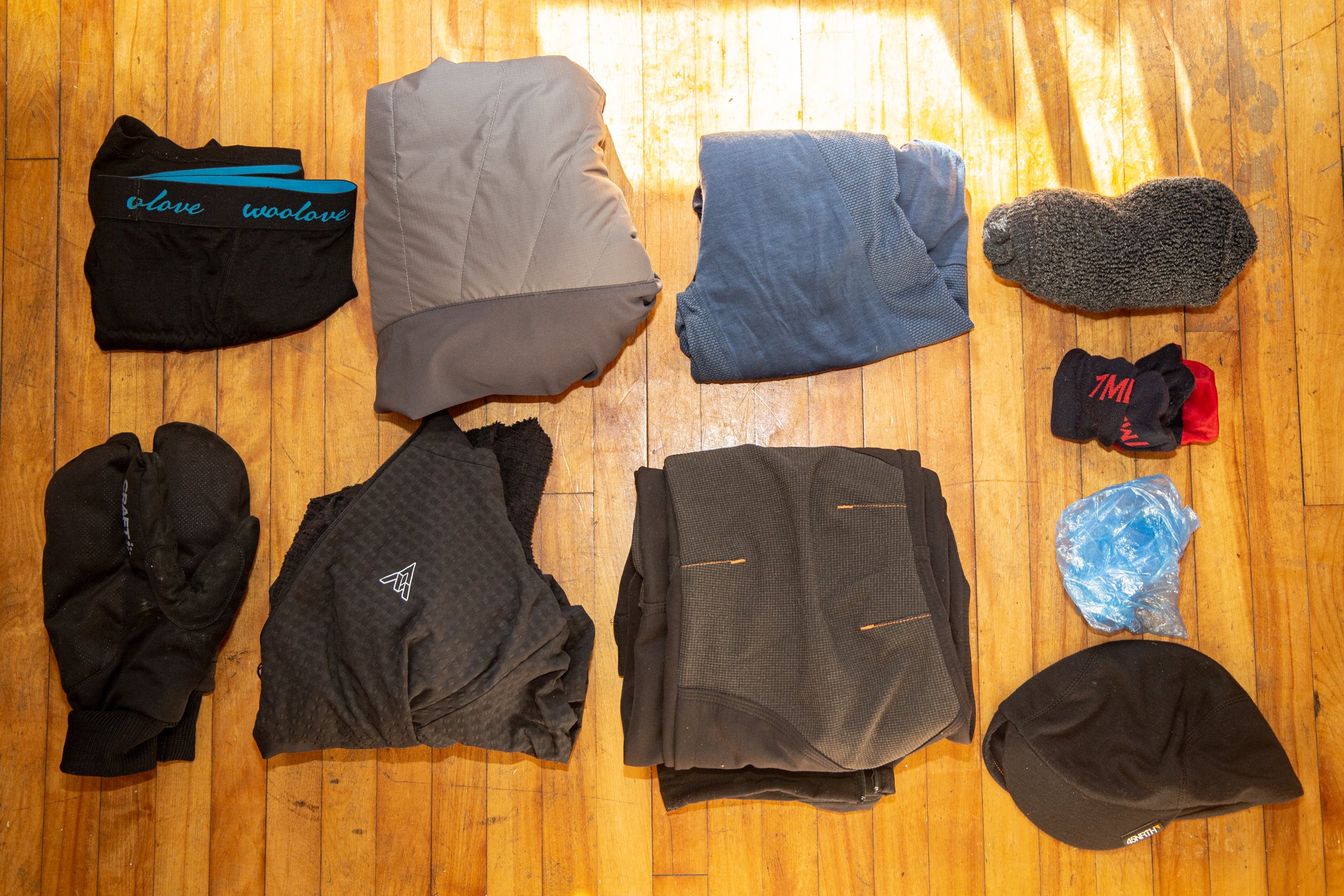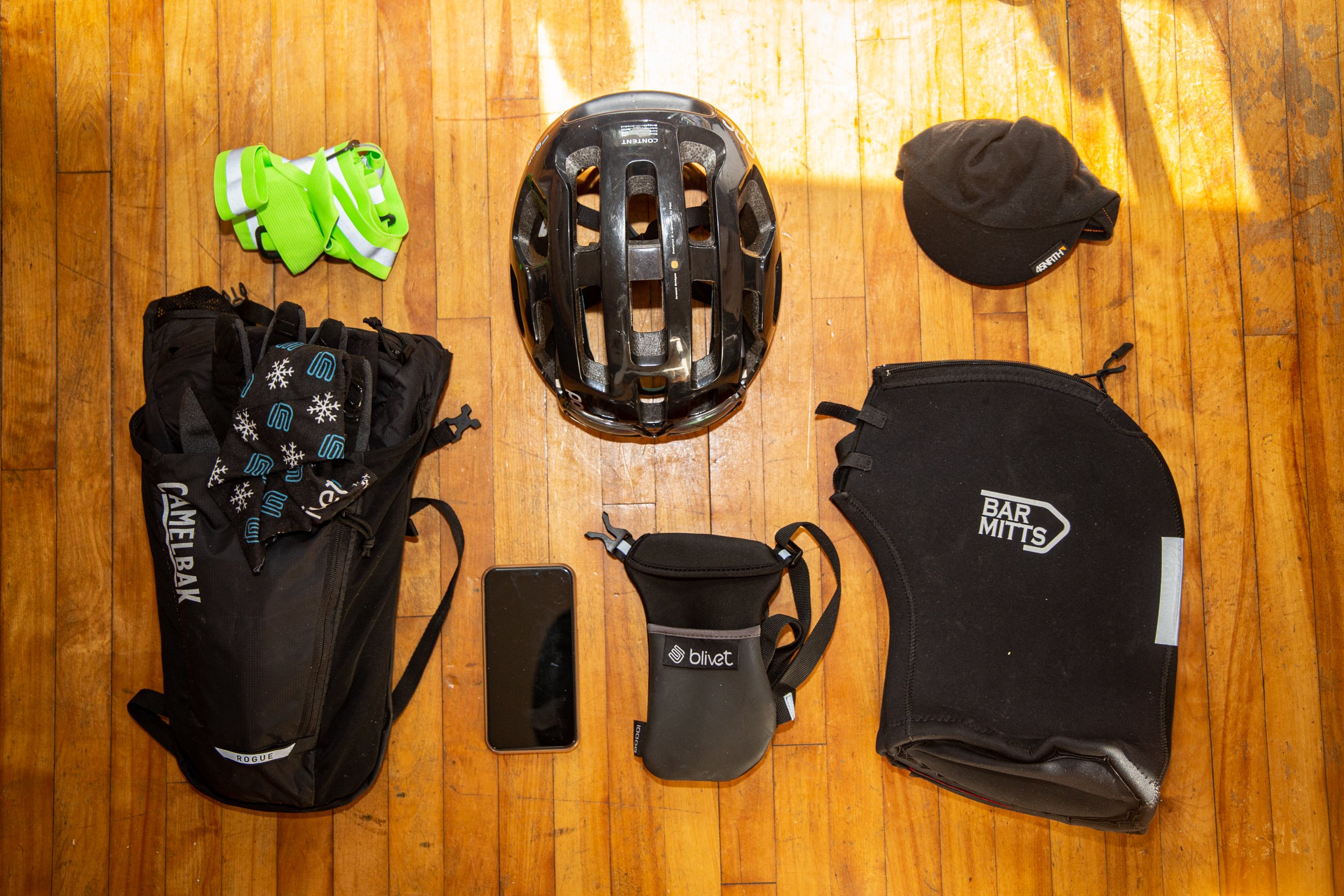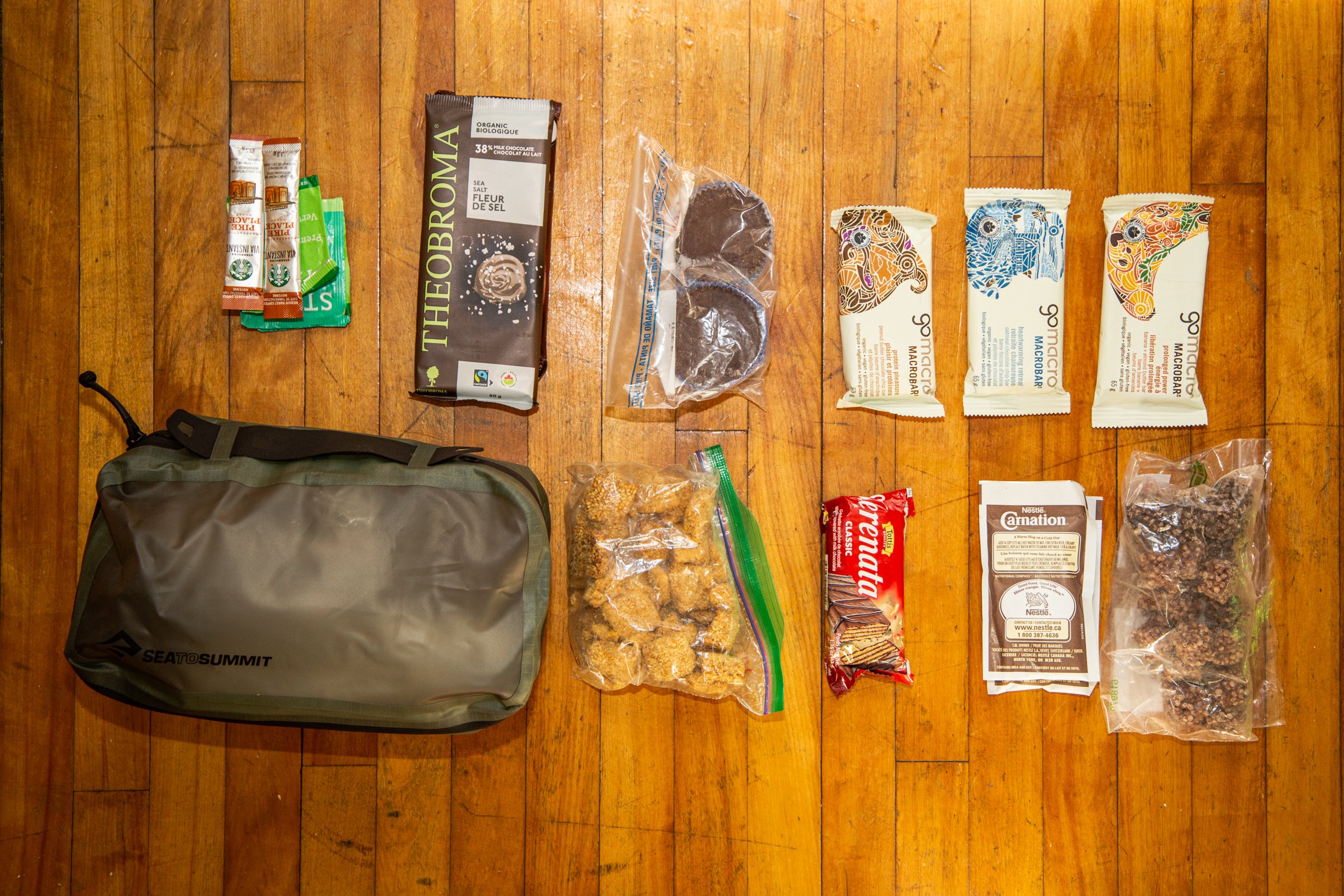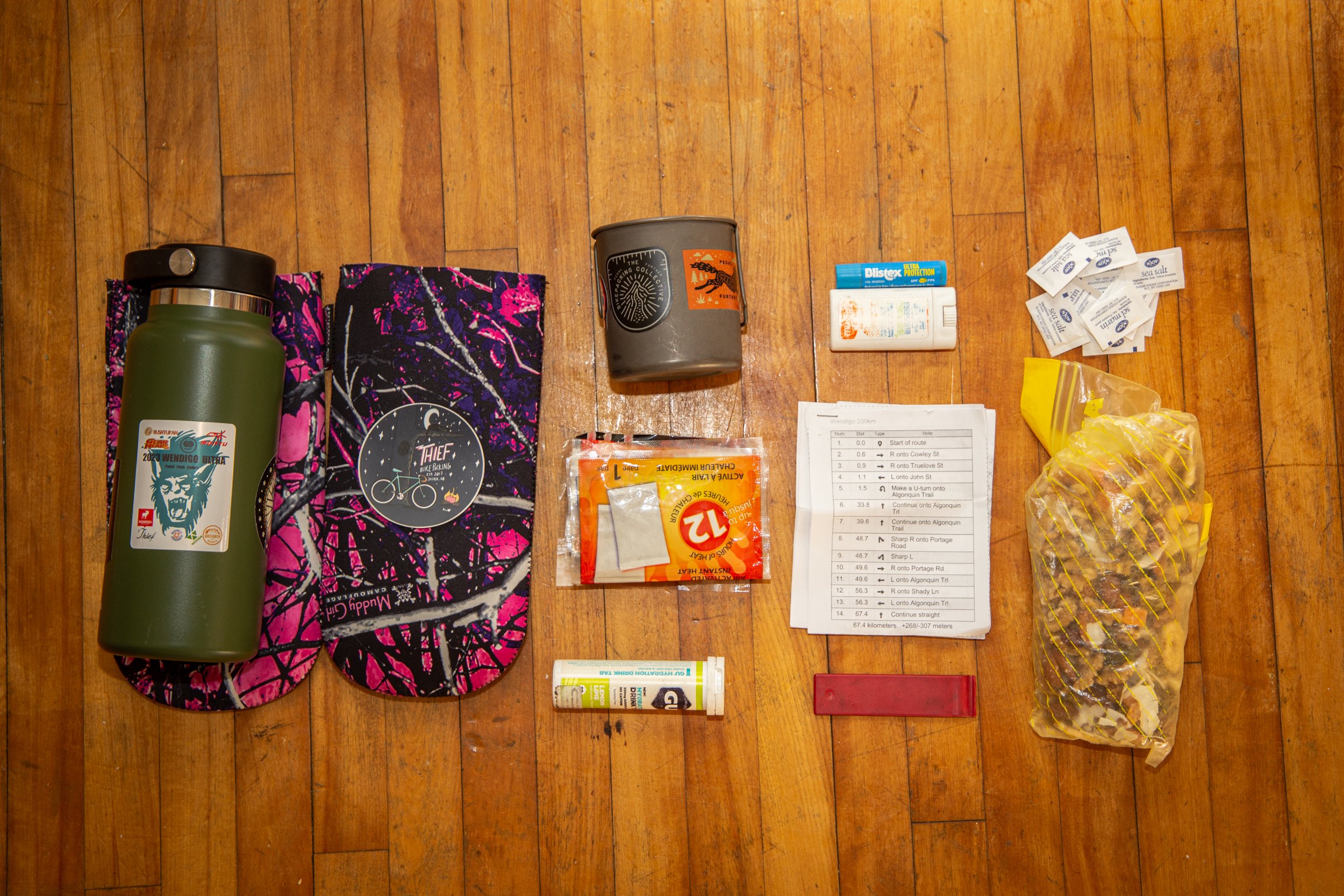Reflections on the Wendigo Fat Bike Ultra
The big day had come. I awoke to temperatures of -24 ° Celsius in the Whitewater region of Ontario for the Wendigo fat bike ultra-race. I was quite nervous that all my gear would be warm enough for these conditions, but once I lined up at the start all my worries melted away and I knew I was ready. The Panorama Chic Chocs handled those rough conditions like a dream, floating over the snow mobile trail of ice and snow (with a little wet gravel) and handling the gear load smoothly.
Because it was my first time doing a fat bike ultra, I knew I would be pushing myself to the limits in this event both mentally and physically, but that’s what I was there for. It was a bit of a slow start for me, trying to find my rhythm and speed and getting enough food and water regularly with big gloves on, which is always hard in the cold. As the day progressed the temperature rose and things started to click into place for me and I could feel positive in the progression I was making. I was happy to meet familiar faces on the trail which did wonders for my high spirits.
After 18 hours of mental ups and downs on the bike, I was exhausted and cold but happy to have completed the 200km, coming in fourth place overall. My gear performed amazingly for those extremes. The bike was still feeling comfortable, without much soreness which is surprising after so many icy hours in the saddle. There were only two things I wanted at the finish, hot nourishing soup and bed to rest my tired body. A big thanks to Cam, the organizer, for dreaming up such a great local event and having the weekend be so relaxed and pressure free. It was nice to come away seeing old friends and making some new ones. It's what a bike event should be.
A special thanks to all the organizers and volunteers at the event who made it enjoyable and run so smoothly! A special thanks to Panorama Cycles and Blivet sports for all the support.
Required Gear
Before the race started the event had a mandatory check list, as most fat bike ultras do. This is for safety of the riders and in case the rider needs to bivy overnight. Each racer had to present their mandatory gear to a race official and sign-off on a waiver that they have had it checked and that they will take it all with themselves for the entirety of the race.
1. Minimum 8 sq inches of reflective material on front and on back of bike or rider
2. Flashing lights on front and back & blinking at all times (24/7). Red at the rear and bright white light on front. High powered light system (ideally 500 lumens or more) with back-up batteries for extended use in cold temps
3. Minimum two liters (2l) of insulated water in a winter-rated insulation system (insulated camelback accepted). Be sure it works in -20c.
4. Emergency bivy or blanket that can fend off the cold/wind.
5. Winter cook system that you've practiced with and trust to work in the cold.
6. 3/4 body length (minimum) insulated foam pad or insulated air pad, "r" value of 3 or greater.
7. Winter-rated sleeping bag. Must say -18c or warmer on the bag (comfort rating).
8. Must start/finish with 800 consumable calories (ie: 4 cliff bars).
9. All 200k racers must have an inreach/spot/tracking device that is functional for the event.
10. Other considerations: cell phone that is charged, spare layers/batteries, food, chemical heat packs, vapour barrier socks, tools, zip ties, gps, cue sheet, phone, etc.
Gear check
With the required gear in mind, here is a list and photos of gear that I brought with me. Everything worked pretty flawless. The only tweaks I would make is more insulated pogies, find goggles that didn’t freeze up after an hour, and somehow insulate my Wahoo a bit, as it was a bit slow at times and got confused when I returned on the same trail for the second 100km stretch.
NEMO Minus -20F degrees sleeping bag
SOL Emergency Bivy sack
Tyvek sheet
3x BIC lighters
Emergency Stove and esbit tablets
Pot/mug
Spoon
knife
Insulated Camelback backpack with 2 litres water in camelback
1.5 litres insulated thermos for hot liquid (coffee and hot chocolate mix)
1-day of readily edible food (about 3600 calories, see below for details)
Princeton tech headlamp + AAA spare batteries
FENIX Handlebar light + spare batteries (with charging cord)
2 FENIX Flashing red LED lights (with charging cord)
Reflective vest
FOX40 Whistle on string
2 pair handwarmers, footwarmers
2x Mittens (1 to wear)
Liner gloves
extra toque
extra buff
7mesh Skypilot goretex jacket
Down jacket
Extra nylon pants
spare merino long underwear
spare socks
Bar Mits pogies
Goggles, sunglasses (need a better solution that doesn’t freeze up)
Gorilla tape, vaseline, lipbalm, moleskin, ibuprofen, TP
Blivet Boddi bag phone carrier
trackleaders SPOT app on phone
Wahoo gps
Map / printed cues
20 ghz Battery bank
Wallet
Phone (with charging cord)
Tools
Voile Straps
Tire pump
Fat tire gauge for low pressure (15psi)
Ortlieb bikepacking bags for packing (rolltop bar bag, front accessory bag, 2 handlebar bag for drinks and snacks, top tube bag, rear saddle bag)
CLOTHES Worn on me
Northbound Gear insulated pants, merino boxers, merino undershirt, merino long sleeve, merino hoodie, 7mesh Anorak hoodie, Mountain Hardwear ultra-light synthetic puff jacket, Blivet Quilo boots, Craft mitts, 2 pair merino socks (with plastic bags as vapour barrier), merino buff and balaclava, POC helmet
FOOD (about 3600 calories)
• trail mix
• Pepperettes (4)
• beef jerkey
• 6 Justin Peanut butter cups
• homemade fruit oat bars
• 3x peanut butter sandwiches
• Chocolate covered coffee beans
• Instant coffee and hot chocolate
• gels
• gummys
• strop waffles
• butter cookies
• 4 energy bars for the finish check


